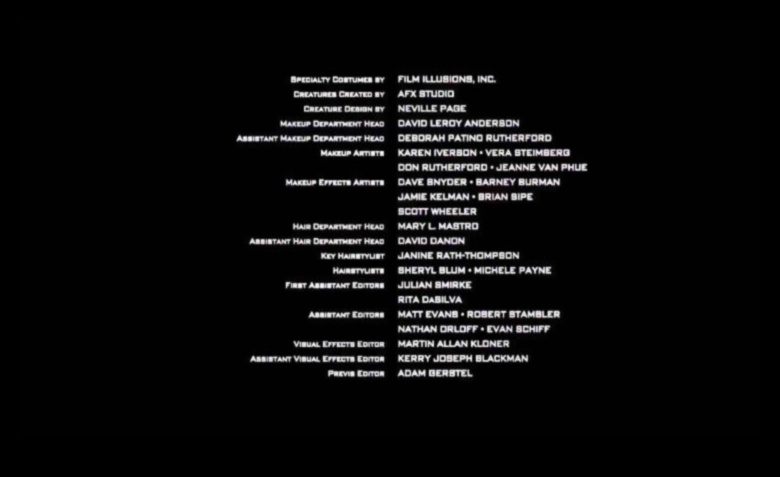
I. Introduction
The film industry is a vast and complex one, with a wide variety of jobs available. From actors and directors to producers and editors, there are countless opportunities for people to find their niche and make a career in film.

II. Types of film industry jobs
The following is a list of some of the most common jobs in the film industry:
- Actors
- Directors
- Producers
- Screenwriters
- Editors
- Camera operators
- Sound engineers
- Art directors
- Costume designers
III. Qualifications for film industry jobs
The qualifications for film industry jobs vary depending on the specific role. However, some general qualifications that are often required include:
- A passion for film
- Creativity
- Technical skills
- Communication skills
- Teamwork skills
IV. How to get started in the film industry
There are a few different ways to get started in the film industry. Here are a few tips:
- Get involved in student films or local productions.
- Network with people in the industry.
- Take classes or workshops.
- Build your portfolio.
- Intern or volunteer.
V. Salary for film industry jobs
The salary for film industry jobs varies depending on the specific role, the level of experience, and the location. However, some general salary ranges are as follows:
- Actors: $40,000 – $100,000
- Directors: $60,000 – $200,000
- Producers: $60,000 – $200,000
- Screenwriters: $40,000 – $100,000
- Editors: $40,000 – $100,000
- Camera operators: $40,000 – $100,000
- Sound engineers: $40,000 – $100,000
- Art directors: $60,000 – $200,000
- Costume designers: $40,000 – $100,000
VI. Work environment for film industry jobs
The work environment for film industry jobs can vary depending on the specific role and the production. However, some general characteristics of the film industry work environment include:
- Long hours
- Fast-paced environment
- Collaborative environment
- Creative environment
- High-pressure environment
There are many opportunities for advancement in the film industry. With hard work and dedication, it is possible to move up the ranks and eventually become a director, producer, or other high-level position. Here are a few tips for success in the film industry: There are a number of resources available to help you There are many different types of jobs available in the film industry, from production to post-production to distribution. Some of the most common film industry jobs include: Each of these jobs has its own unique set of responsibilities and requirements. For example, directors are responsible for overseeing the creative vision of a film, while producers are responsible for managing the budget and schedule. Writers are responsible for creating the screenplay, while actors are responsible for bringing the characters to life. Cinematographers are responsible for capturing the images on film, while editors are responsible for cutting the film together. Sound designers are responsible for creating the soundscape of a film, while gaffers and grips are responsible for the lighting and rigging on set. The film industry is a competitive field, and there are many talented people who are vying for the same jobs. However, if you have the passion and the drive, there are many opportunities to make a career in the film industry. There are a wide variety of jobs available in the film industry, from behind-the-scenes roles such as production assistants and script supervisors to on-camera roles such as actors and directors. Some of the most common film industry jobs include: Each of these roles has its own unique set of duties and responsibilities, and the required qualifications vary depending on the specific job. For example, actors must have strong acting skills, while production designers must have a strong understanding of art and design. The film industry is a competitive field, and it can be difficult to break into. However, if you have the passion and the drive, there are many opportunities to make a career in film. The film industry is a broad and diverse one, with a wide range of job opportunities available. Some of the most common film industry jobs include: These are just a few of the many jobs that are available in the film industry. For a more comprehensive list, you can visit the website of the Motion Picture Association of America (MPAA). Each of these jobs has its own unique set of responsibilities and requirements. For example, directors are responsible for overseeing the creative and technical aspects of a film, while producers are responsible for managing the budget and schedule. Writers are responsible for creating the script, actors are responsible for bringing the characters to life, and cinematographers are responsible for capturing the film’s visuals. The film industry is a competitive one, but it can also be very rewarding. If you are passionate about film and have the skills and experience to match, there are many opportunities for you to succeed. The salary for film industry jobs can vary depending on a number of factors, including the job title, level of experience, and location. However, some general salary ranges for common film industry jobs are as follows: It is important to note that these are just general salary ranges and that the actual salary for a particular job will vary depending on the specific circumstances. For example, a director who works on a major Hollywood film will likely earn a much higher salary than a director who works on a small independent film. Additionally, salaries for film industry jobs can vary significantly from one location to another. For example, directors in Los Angeles typically earn more than directors in other parts of the country. Overall, the salary for film industry jobs can be competitive, but it is important to remember that there are a number of factors that can affect the actual salary that you earn. The work environment for film industry jobs can vary depending on the specific role and the production company. However, some common features of the film industry work environment include: * Long hours: Film production can be a very demanding and time-consuming process, and workers in the film industry often work long hours, including nights and weekends. There are many opportunities for advancement in the film industry, depending on your skills and experience. Some of the most common career paths include: Director: Directors are responsible for overseeing the creative and technical aspects of a film. They work with writers, actors, cinematographers, and other crew members to bring a film to life. These are just a few of the many career paths available in the film industry. With hard work and dedication, you can achieve your dream of working in the film industry.
Here are some tips for success in the film industry:
The following resources can be helpful for finding film industry jobs:
Question 1: What are the different types of jobs in the film industry?
Question 2: What are the qualifications for getting a job in the film industry?
Question 3: How can I get started in the film industry?
Topic
Feature
Film industry jobs
A list of different types of jobs available in the film industry
Film jobs
A list of specific job titles and descriptions in the film industry
Careers in film
Advice on how to get started in a career in the film industry
Film production jobs
A list of jobs specific to the film production process
Filmmaking jobs
A list of jobs specific to the filmmaking process
II. Types of film industry jobs
III. Types of film industry jobs
II. Types of film industry jobs
V. Salary for film industry jobs

VI. Work environment for film industry jobs
* Fast-paced and collaborative: The film industry is a fast-paced and collaborative environment, and workers need to be able to work well under pressure and be able to work effectively with others.
* Creative and innovative: The film industry is a creative and innovative industry, and workers need to be able to come up with new ideas and be able to think outside the box.
* Competitive: The film industry is a competitive industry, and workers need to be able to stand out from the crowd and be able to sell themselves and their work.
VII. Advancement opportunities in the film industry
Producer: Producers are responsible for managing the financial and logistical aspects of a film. They work with directors, writers, actors, and other crew members to ensure that a film is produced on time and within budget.
Writer: Writers are responsible for creating the stories and scripts that form the basis of films. They work with directors, producers, and actors to develop and refine their work.
Actor: Actors are responsible for bringing characters to life on screen. They work with directors, producers, and writers to develop their characters and perform their roles.
Cinematographer: Cinematographers are responsible for capturing the images that appear on film. They work with directors, producers, and actors to create visually stunning films.
Editor: Editors are responsible for assembling the footage shot by cinematographers into a cohesive film. They work with directors, producers, and writers to create a film that tells a compelling story.
Sound designer: Sound designers are responsible for creating the sound effects and music that accompany a film. They work with directors, producers, and editors to create a film that has a powerful emotional impact.Tips for success in the film industry
IX. Resources for film industry jobs
FAQ
Answer 1: There are many different types of jobs in the film industry, including:
Answer 2: The qualifications for getting a job in the film industry vary depending on the specific role, but some general qualifications include:
Answer 3: There are a few different ways to get started in the film industry, including: